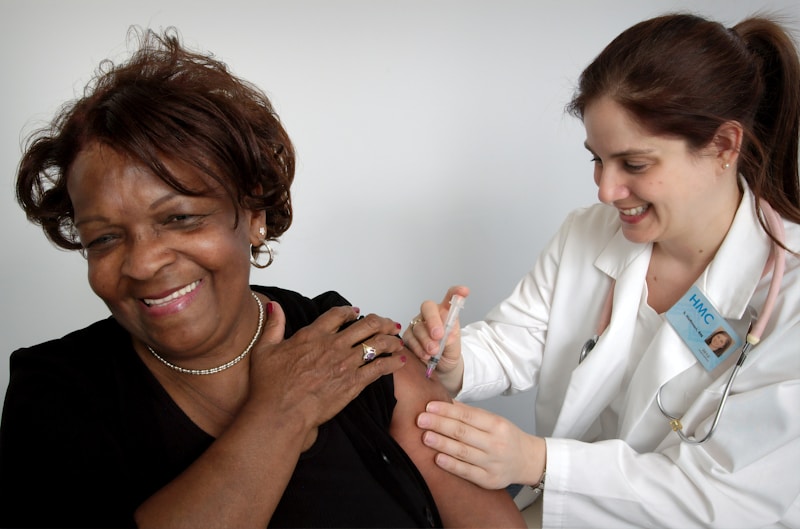30 Questions
What is the primary focus of the Nursing Process?
Problem solving and decision making
Which step of the Nursing Process involves determining outcome criteria and developing a plan?
Planning
What is the main characteristic of the Nursing Process according to the text?
Cyclic and Dynamic
What types of data are collected during a holistic data collection by nurses?
Physiological, psychologic, sociocultural, developmental, spiritual
Which healthcare professional focuses primarily on the client's musculoskeletal system?
Physical Therapist
What is the purpose of the Evaluation step in the Nursing Process?
"Was the plan met/effective" or "does it need revision?"
What are the four physical examination techniques used to obtain objective data?
Inspection, Palpation, Percussion, Auscultation
Why is validation of assessment data important?
To ensure accurate assessment data
What is the purpose of documenting assessment data?
To form the database for the nursing process
What is the main focus of the nursing interview?
Gathering holistic information on the client
During which phase do nurses review the client's medical record?
Preintroductory Phase
What are the physical characteristics that can be observed during a health assessment?
Skin Color and Posture
When does the 'Ongoing' assessment typically take place?
After a nurse encounters the client
What is the purpose of the 'Emergency' assessment?
To determine the client's life-sustaining physical function status
When should the 'Focused' assessment be conducted?
After a client comes in with a special concern
Where is the 'Collection of objective data' typically gathered?
Hospital, clinic, school, or home setting
What type of data is collected during the 'Preparing for the Assessment' phase?
Verbalized and verified by the patient
What is included in subjective data according to the text?
Client's personal information and beliefs
What information should be included in the Biographical Data of a client?
Name, address, phone number, gender
Why is the Family Health History considered important?
To identify health problems that may have affected the client due to family exposure
What should an assessment of the Review of Systems for Current Health Problems focus on?
Client's subjective information
What does the Lifestyle and Health Practices Profile include?
Substance Use information
Which aspect is covered in the Nutrition and Weight Management section of the assessment?
Average 24-hour intake recall
Why does the assessment of Sleep and Rest matter?
To assess if the client is getting enough sleep and rest
What is the purpose of silence periods during a client interview?
To reflect and organize thoughts for accurate reporting
Which type of question is best suited to elicit a client's feelings and perceptions?
Open-ended questions
What is the benefit of using rephrasing during a client interview?
To reflect on and clarify information provided by the client
Which technique involves providing the client with a list of words to choose from?
Laundry List
How can verbal communication be described in a client interview?
Essential for effective communication in a client interview
Which action encourages the client to continue sharing information during the interview?
'Uh-huh', 'yes', or 'I agree' phrases
Study Notes
Nursing Process Overview
- The primary focus is on delivering comprehensive client care through a systematic approach.
- A key characteristic is its dynamic, continuous nature, emphasizing the need for ongoing reassessment.
Steps in the Nursing Process
- The planning step involves determining outcome criteria and developing a personalized care plan for the client.
- Evaluation aims to assess the effectiveness of nursing interventions and the client's progress towards goals.
Data Collection in Nursing
- Holistic data collection includes physical, psychological, social, and spiritual dimensions of the client’s health.
- Objective data is gathered using four examination techniques: inspection, palpation, percussion, and auscultation.
Importance of Data Validation and Documentation
- Validation of assessment data ensures accuracy and reliability, preventing misinformation.
- Documenting assessment data is crucial for maintaining continuity of care and legal accountability.
Client Interview Focus
- The main focus of the nursing interview is to gather detailed information about the client's health status and concerns.
- During the assessment phase, nurses review the client's medical record to gain medical history context.
Types of Assessments
- Ongoing assessments are conducted throughout the care process to monitor changes in the client's condition.
- Emergency assessments are performed when immediate care is required due to acute health crises.
- Focused assessments are conducted when specific health issues are identified and require deeper investigation.
Gathering Objective Data
- Objective data is typically collected through physical examinations and observations in clinical settings.
Subjective and Biographical Data
- Subjective data includes the client's personal experiences and feelings related to their health.
- Biographical data should capture details such as age, gender, ethnicity, and primary health concerns.
Family Health History
- This history is essential as it can indicate genetic predispositions to certain health conditions.
Review of Systems and Lifestyle Assessments
- The Review of Systems for Current Health Problems focuses on identifying symptoms and concerns per body system.
- The Lifestyle and Health Practices Profile assesses daily habits affecting health such as exercise and substance use.
Nutrition and Sleep Assessments
- The Nutrition and Weight Management section evaluates dietary habits and any weight-related concerns.
- Assessment of Sleep and Rest matters because sleep quality can significantly impact overall health.
Communication Techniques in Interviews
- Silence periods provide clients with space to think and can facilitate deeper conversation.
- Open-ended questions effectively elicit the client's feelings and perceptions on their health experiences.
- Rephrasing during the interview clarifies information and shows active listening.
- The technique of offering a list of words helps clients articulate emotions accurately.
- Verbal communication can be described as clear, empathetic, and focused on the client's needs.
- Encouraging actions, like nodding or expressing understanding, motivate clients to share more information.
Learn about the steps involved in a health assessment including gathering subjective data like biographical information and health history, as well as objective data obtained through physical examination techniques like inspection, palpation, percussion, and auscultation.
Make Your Own Quizzes and Flashcards
Convert your notes into interactive study material.




